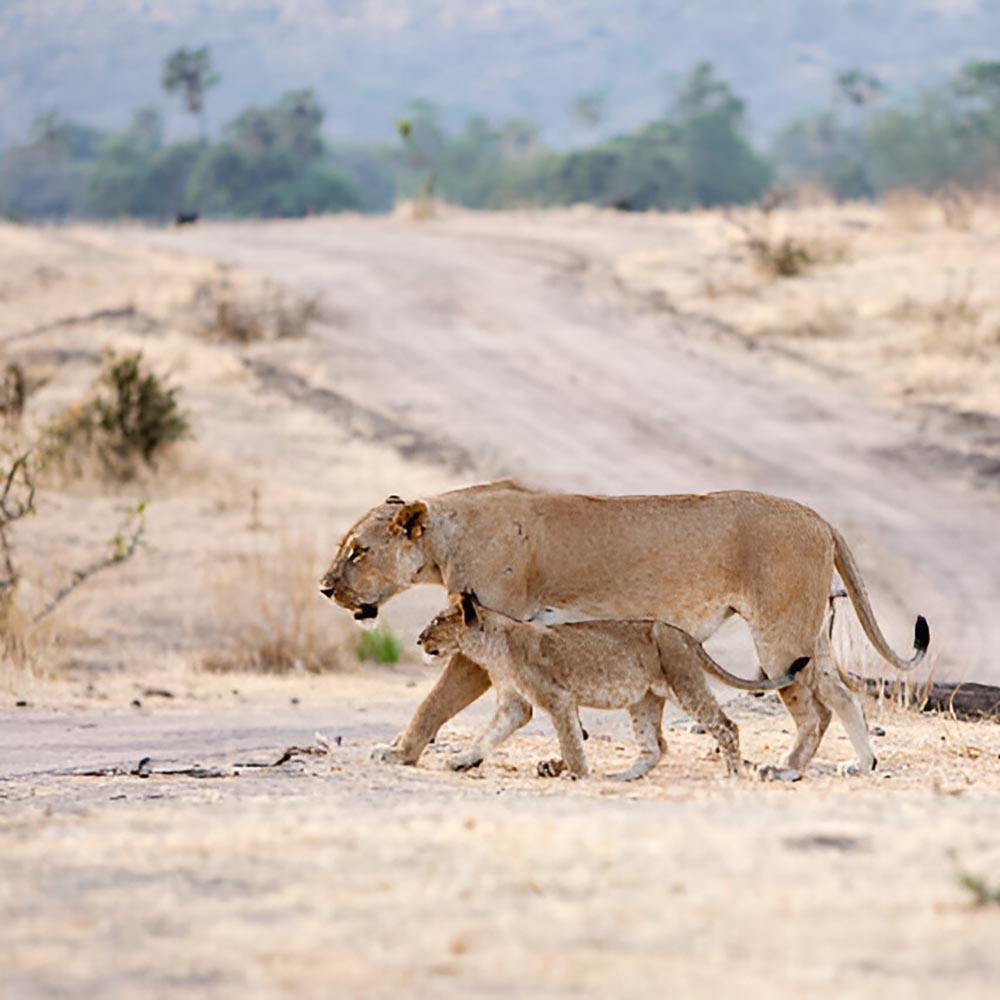Why visit the Ruaha Park?
Ruaha National Park, nestled in southern Tanzania, is a hidden gem with a hot, dry climate and breathtaking landscapes. The park is home to the majestic Ruaha River, which runs along its southeast border, tumbling over boulders and creating a striking contrast with the surrounding riparian woodlands. Beyond the river, the park features vast baobab forests, expansive grasslands, and fresh springs that offer sanctuary to a diverse range of wildlife.
Ruaha boasts abundant game, including impala, giraffe, zebra, buffalo, and both greater and lesser kudu. Roan and sable antelope are also found here, alongside large prides of lions, spotted and striped hyenas, wild dogs, and elusive leopards. The birdlife is equally impressive, with species like emerald spotted doves and crested barbets commonly seen.
Visitors can enjoy exceptional game drives, especially during the dry season, when animals gather around the river. The park's peaceful atmosphere and few camps make it a tranquil, unspoiled destination.
Ruaha Park Tour Ideas.
Not sure where to begin? Check out our best-selling safari tours to kickstart your adventure!
Photos of Ruaha Park






Suggested Accommodation Ruaha Park
At Ruaha Park, we’ll help you find the perfect stay—whether you’re looking for a luxurious riverside lodge or a charming, nearby guesthouse.

Ruaha River Lodge

Kichaka Zumbua Camp

Mdonya Old River Camp

Jongomero Camp

Kwihala Camp

Mwagusi camp
Why travel with
Genau Adventure Safaris.
Frequently Asked Questions
We've answered all your questions about visiting Ruaha Park to help you plan the perfect trip.
Ruaha is known for its stunning landscapes, diverse wildlife, and the Ruaha River, which attracts a variety of animals, especially during the dry season.
The park can be accessed by road from Iringa or by chartered flights to nearby airstrips, such as Ruaha Airstrip.
Visitors can see elephants, lions, leopards, giraffes, buffalo, and many antelope species, as well as a rich variety of birdlife.
There are several lodges and tented camps offering various levels of comfort, from luxury to more budget-friendly options.
Activities include game drives, walking safaris, and birdwatching, with morning and evening drives being particularly popular.
The dry season, from June to October, is the best time for wildlife viewing, as animals gather around water sources.
Yes, malaria is present, so it's advisable to take preventive measures, such as using insect repellent and taking antimalarial medication.
Yes, many lodges welcome families, but check specific age restrictions and suitability of activities for younger children.
Pack lightweight clothing, sturdy shoes, sunscreen, insect repellent, binoculars for wildlife viewing, and a good camera for capturing the stunning scenery.






